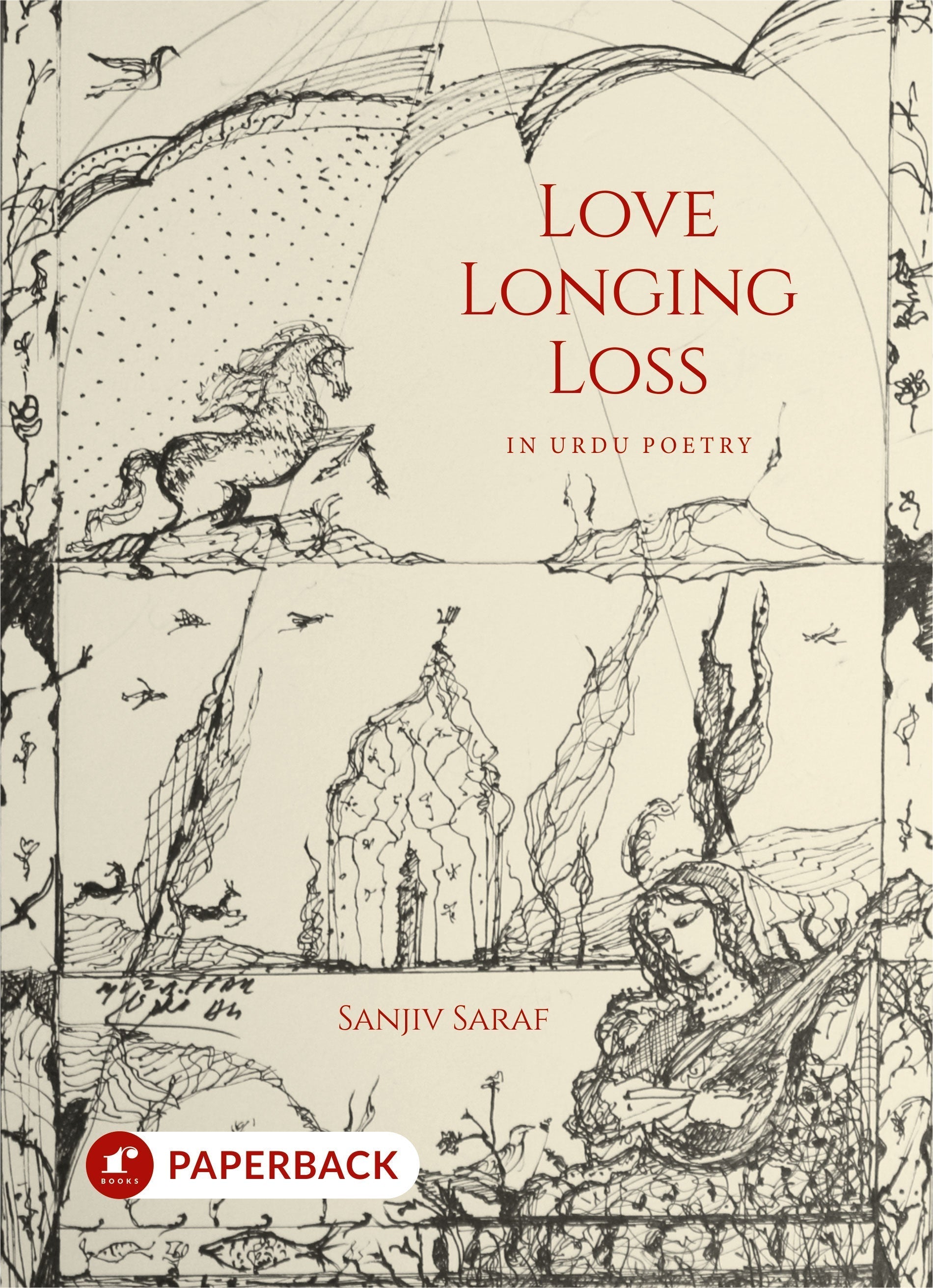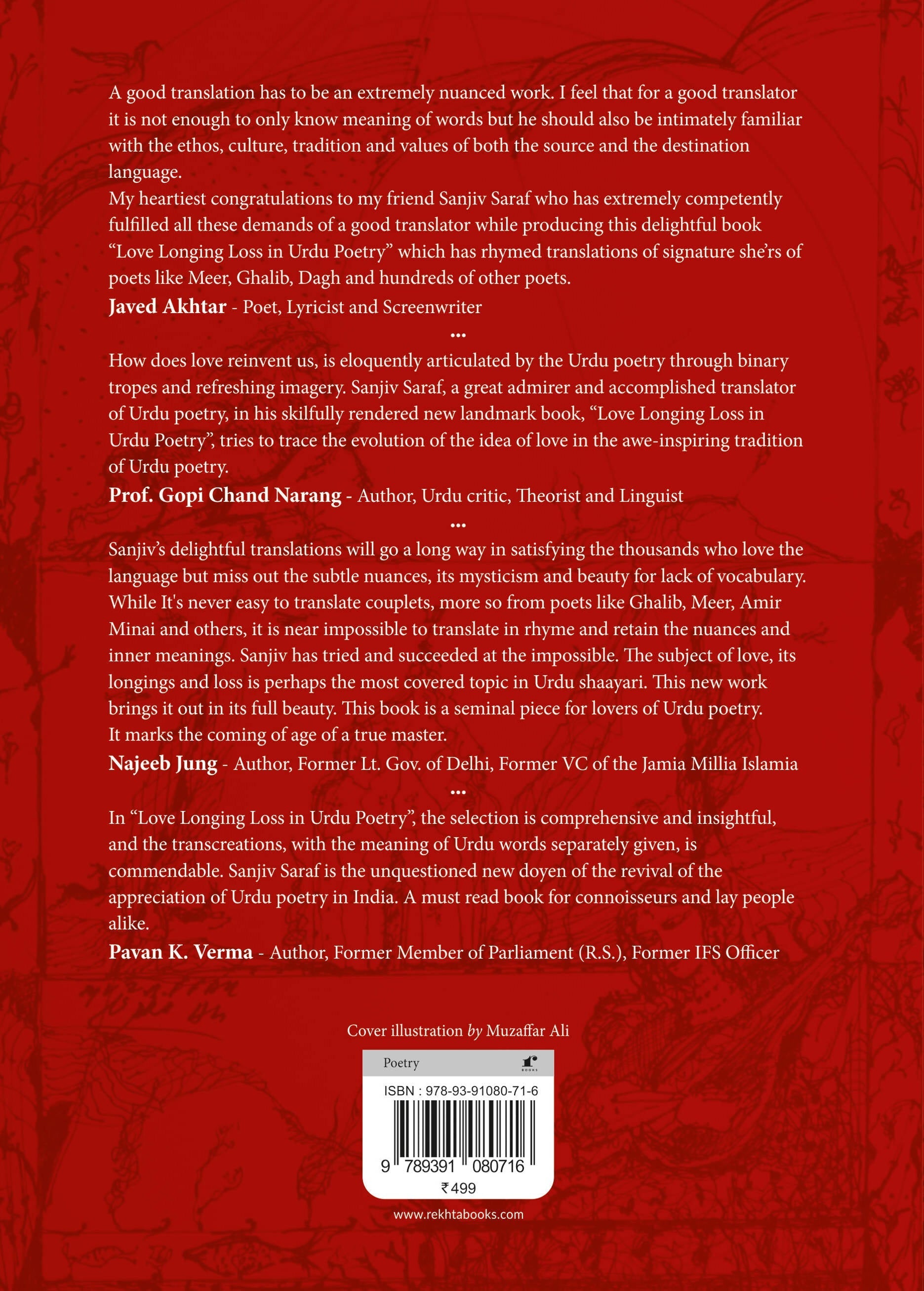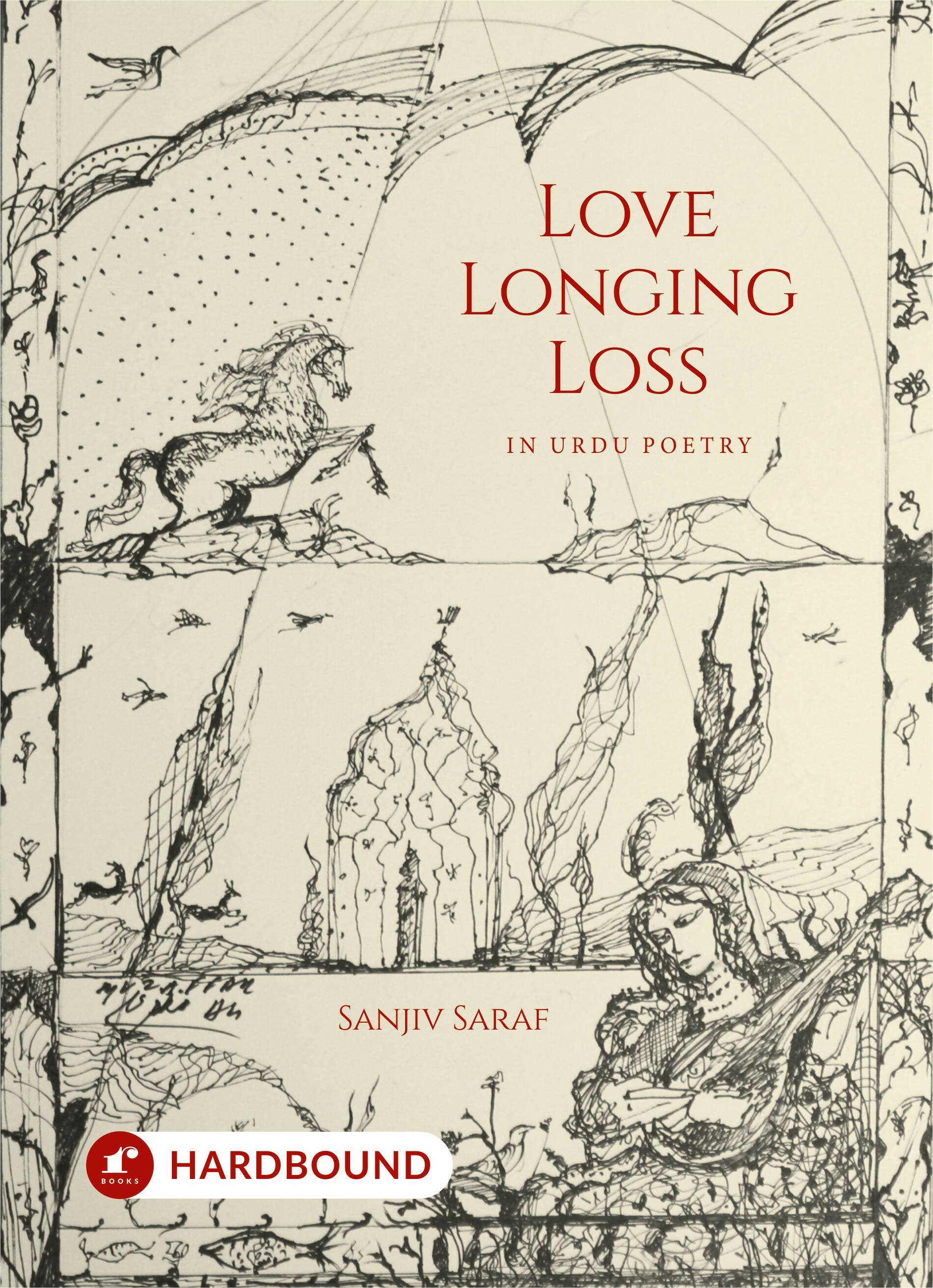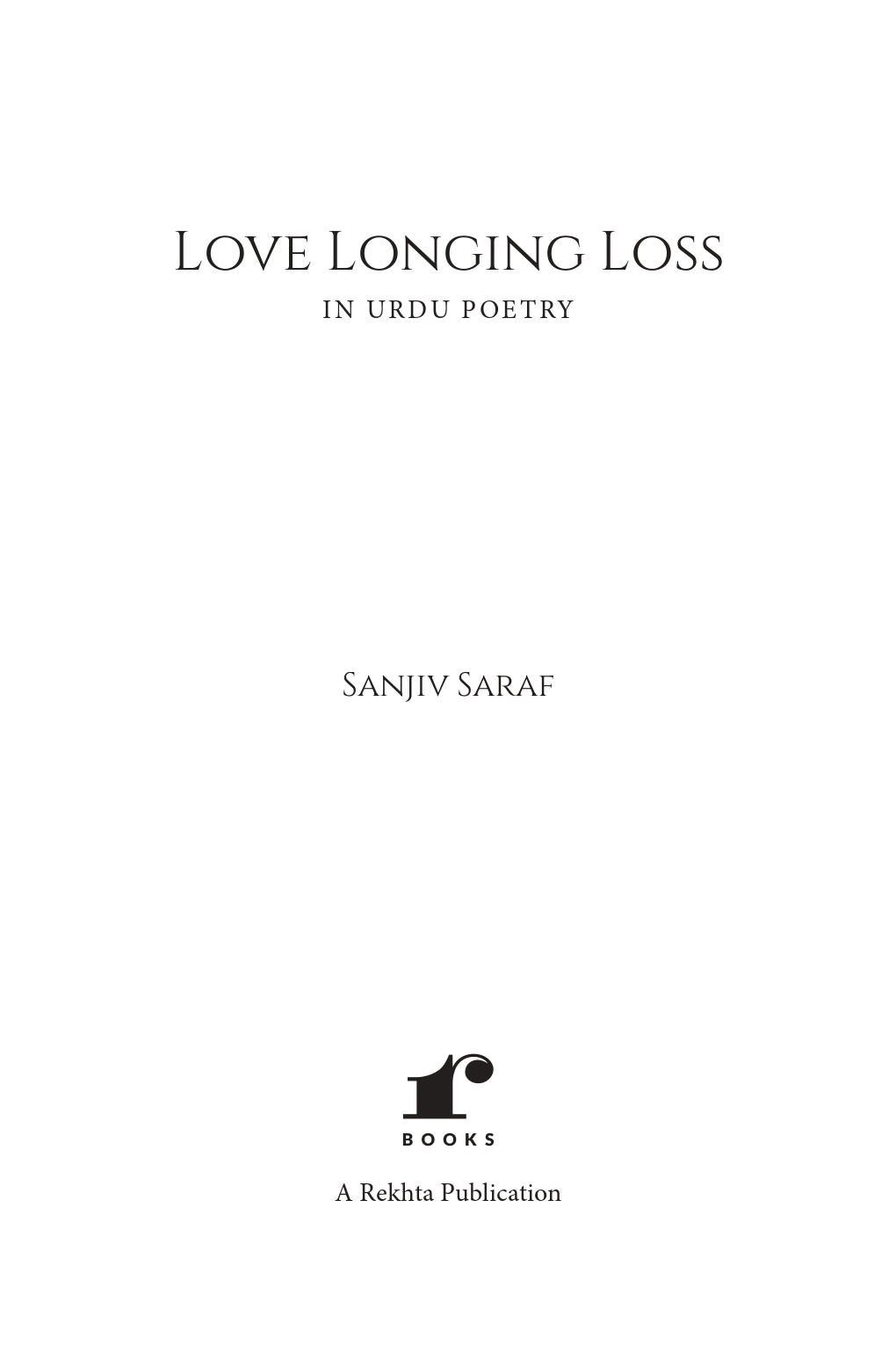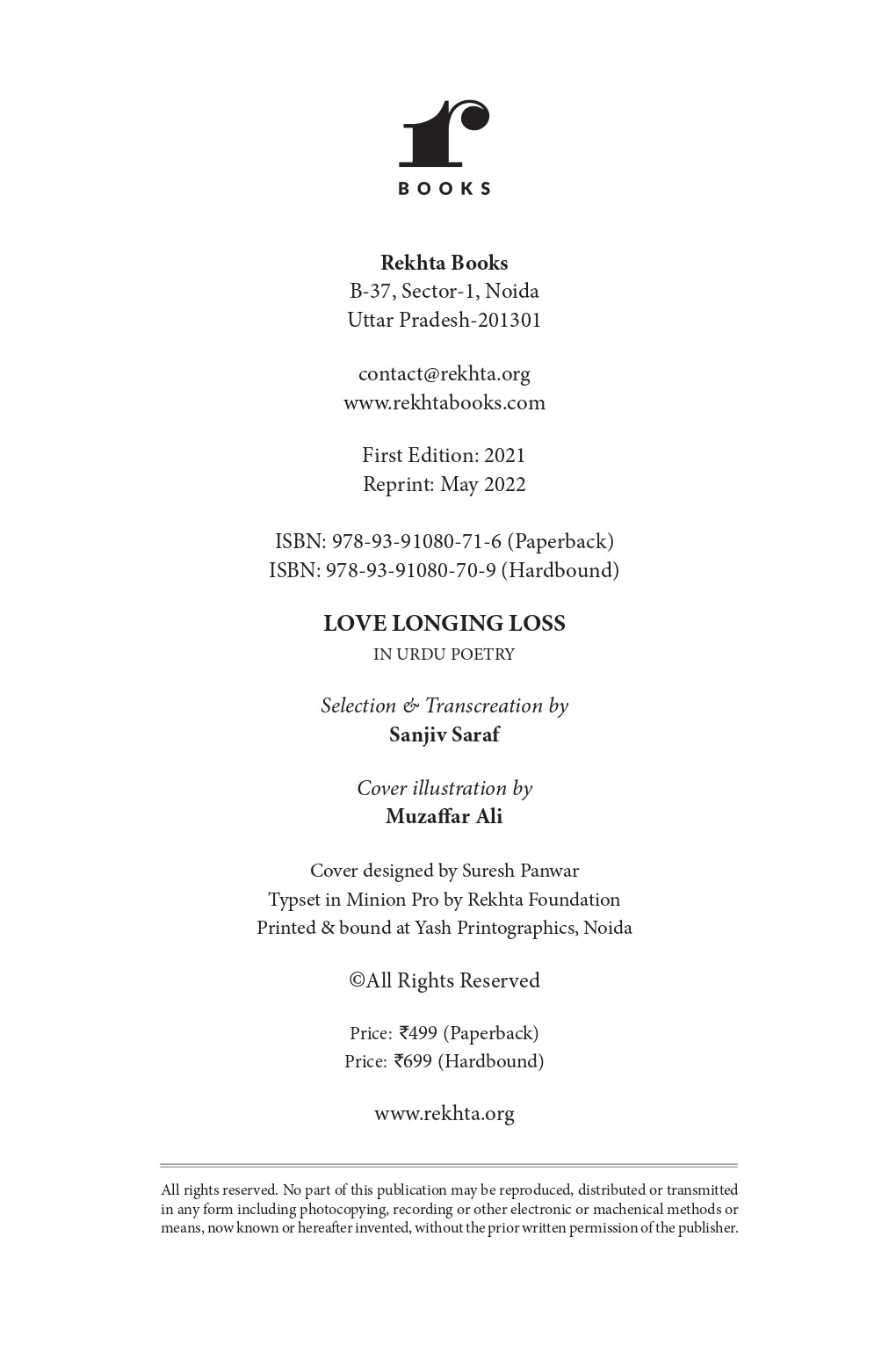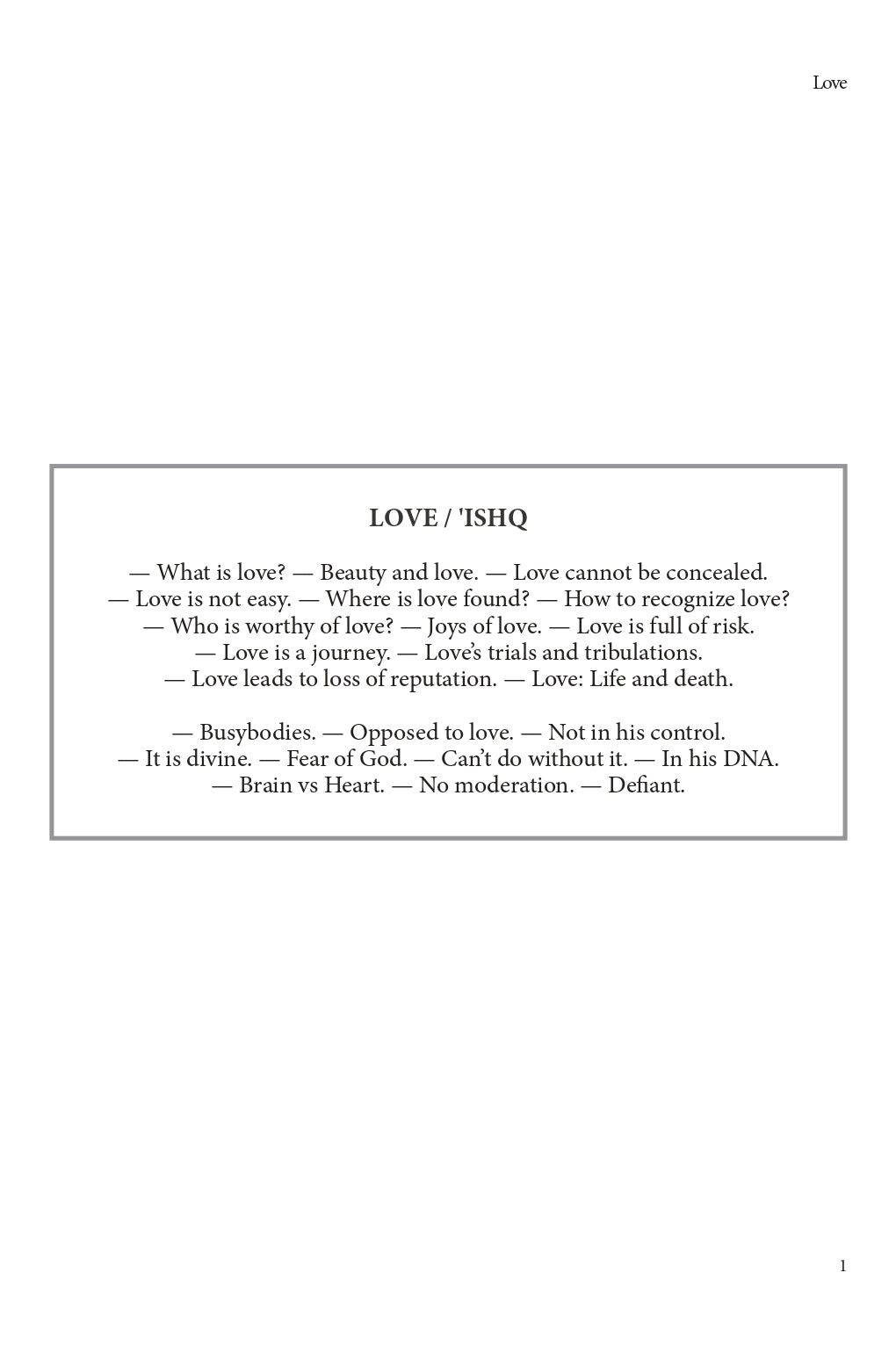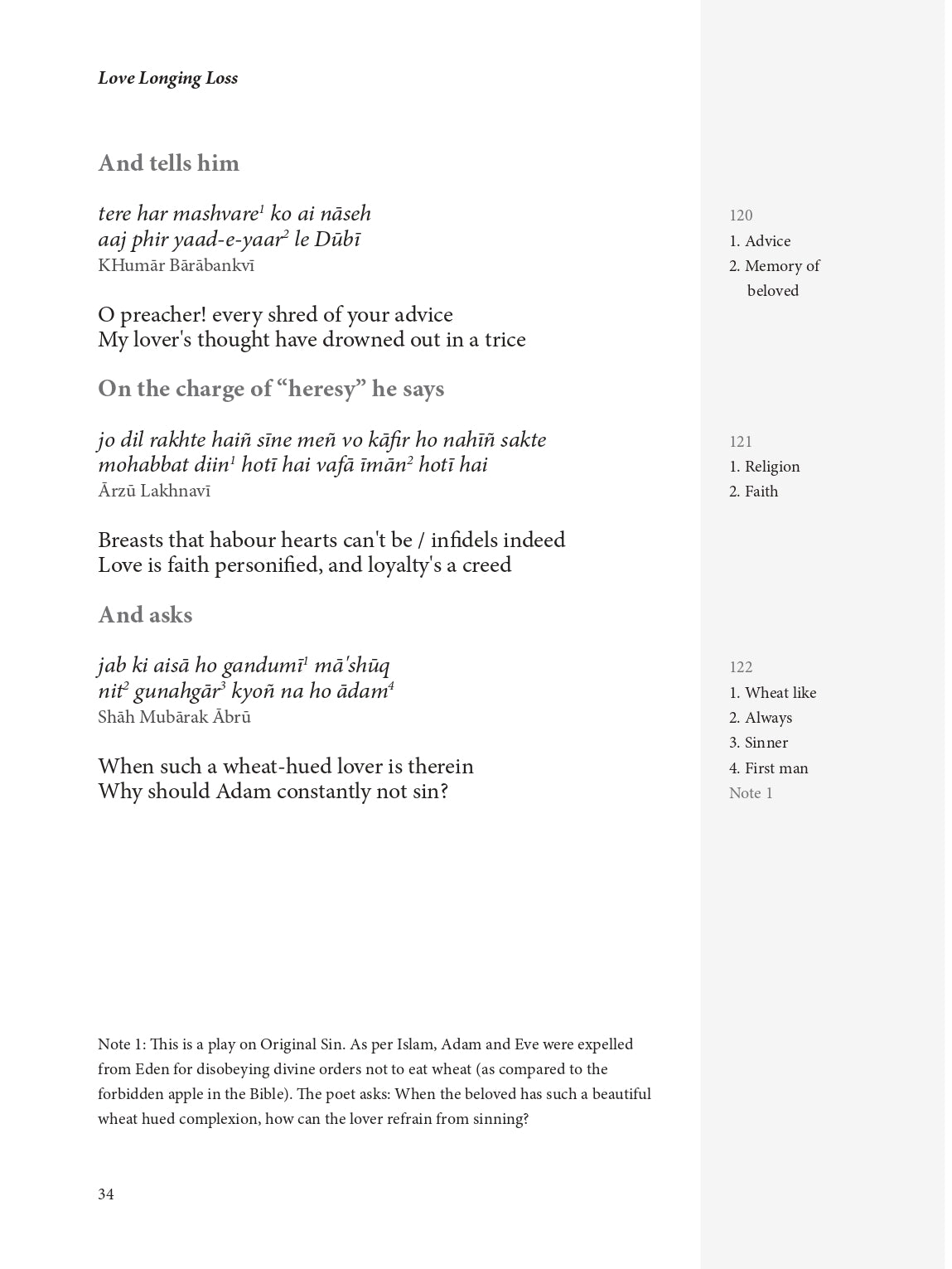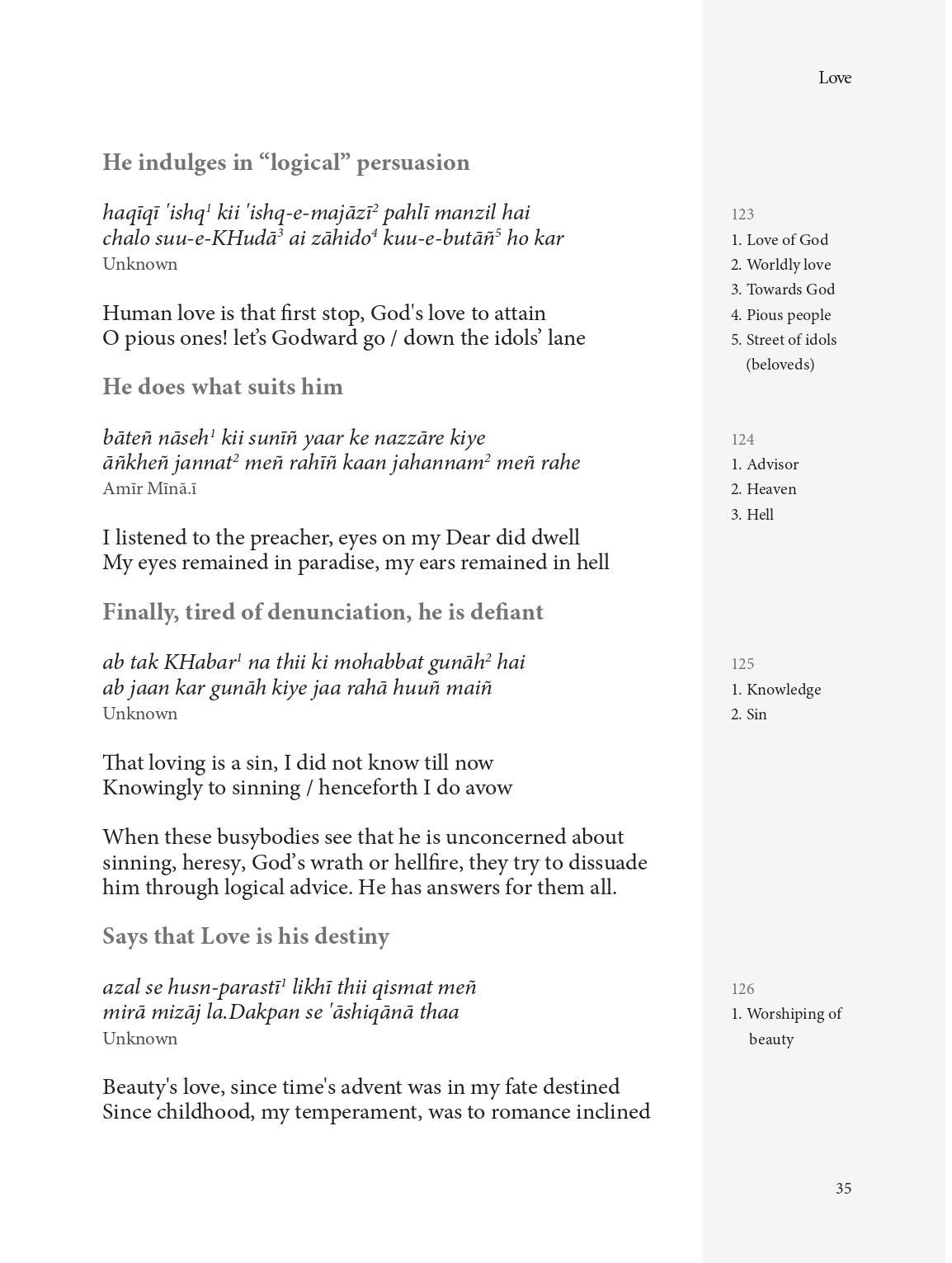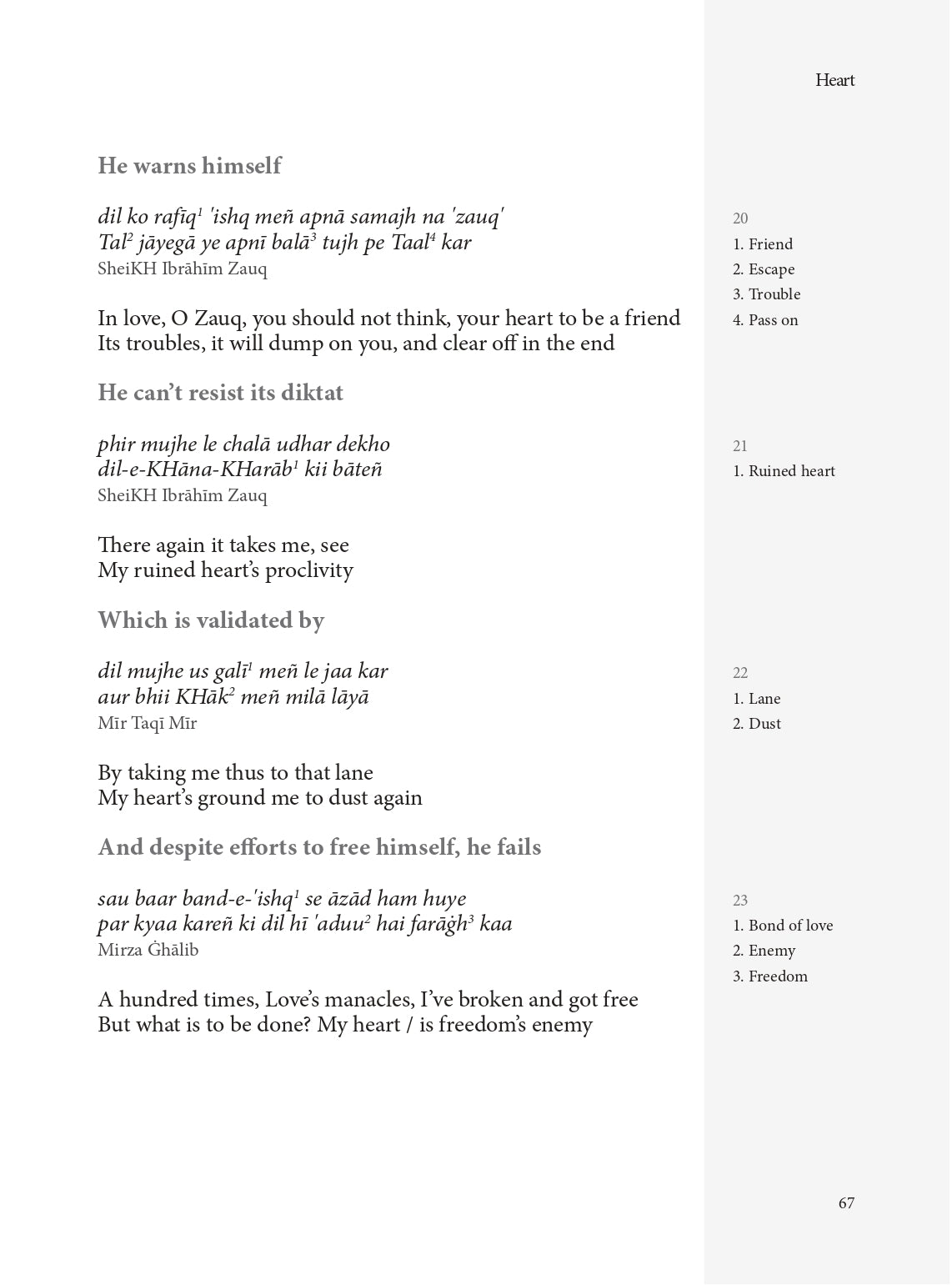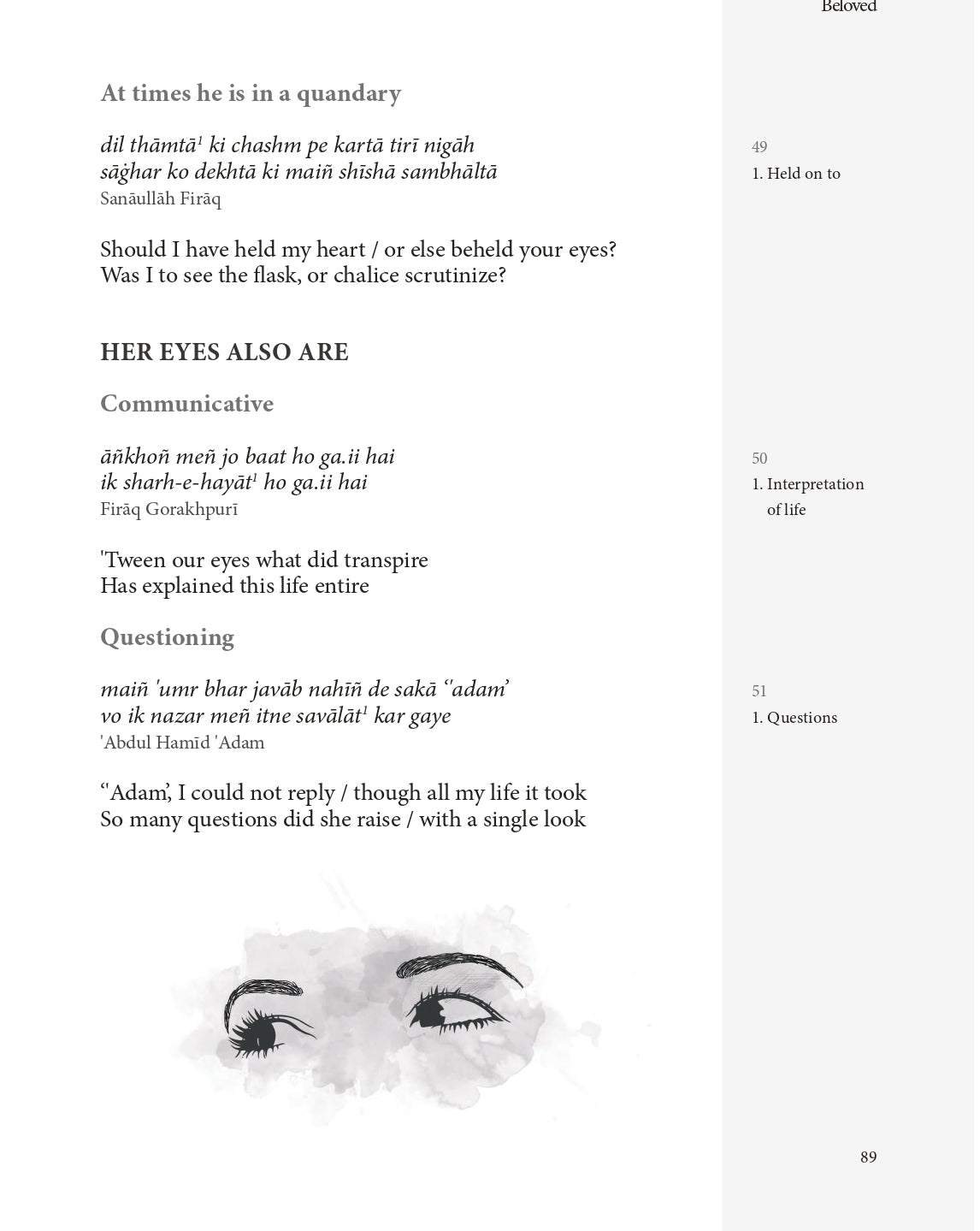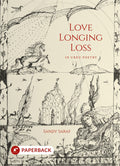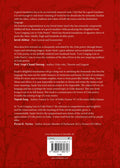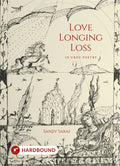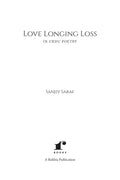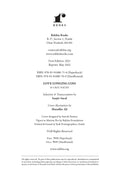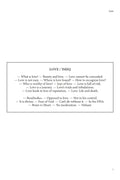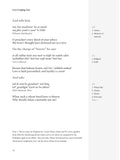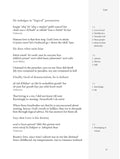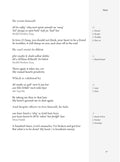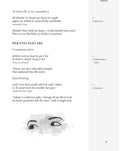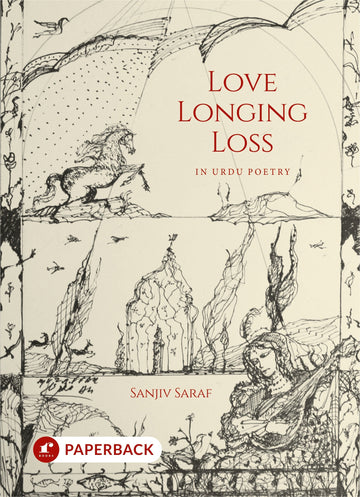It took me twenty years to begin to learn and respond to the joys of Urdu poetry perhaps because I associated it too much with the sentimentality of Bollywood, not enough with the sophistication of Indian classical music. I knew about Ghalib of course, and had even attempted to track down more than the standard remains that are visible in Nizamuddin, near where I lived in Delhi for a few happy years. But I also had the impression that Ghalib’s was a sour, cynical, sarcastic and drunken presence, rather than a funny, playful and passionate one. But I found that my Indian friends would always or invariably smile whenever the subject of Urdu poetry came up, so I gradually realized that there was something very special there. But there was so much to discover about Indian culture, confusing and inspiring as it is, always—past, present and future—now and forever—so Urdu remained impenetrable to me.
So it has been only in the last 4-5 years that I have begun to discover Urdu hand in hand with Rekhta. I have shared throughout, though remotely, in the enthusiasm which my friend Sanjiv discovered for the language and culture and expressed to such an extent that it took over and completely transformed his life. The power of Urdu has taken Sanjiv’s life over and also, through Rekhta, it has inspired so many more people worldwide with the wonders of its poetry—like the poetry in this book and in other books which drink from the same spring—the Pierian spring of the muses, as the Ancient Greeks put it. There are many wonderful things about Urdu but, for me, the very best things about Urdu are that it completely transcends the boundaries between high and low culture, between sophisticated and rustic forms of language, and also between nations—and does so effortlessly.
The essence of Urdu is extremely difficult to capture in English. Perhaps that is partly because English has turned from being a creative expressive force, as it was in the seventeenth century, into an amalgam of different cultures best suited to expressing business—and also scientific—propositions and not so good for beautiful poetry. Urdu started in some ways as a sophisticated literary language and it still has many formal aspects but it manages to combine those formalities with simple language and at times, extremely direct meaning. [I recently discovered for example that publications of prose storytelling in Urdu–following the Persian—tended to be in rhyming prose until the time of Sir Syed Ahmad Khan] Urdu poetry requires metre and sometimes also rhyme which are of course quite different in English.
The concept of transcreating was started by Sanjiv in his earlier book, "Navā-e-Sarosh". In that book I found, and many other readers have found, that the constraints of English rhyming couplets, though not the same, are a pretty good proxy for it–and they help to create, from time to time, some pleasing lines of English verse. My role in what certainly is transcreating and not a form of ‘co-creating’ happened
spontaneously, but gradually, working very closely together, Sanjiv and I have found that it helps to have two ears to make sure that the rhymes and the sometimes archaic-seeming English word order work as smoothly as possible.
In the process I began to compare the works of Meer, Momin, Dagh, Ghalib and others with those of some of my favourite poets in other languages–for example the Latin poets from around the first century CE–most famously Horace, Virgil and Ovid, but more concisely and pungently in the satire of Martial and Juvenal and the love-crazed poems of Propertius and Catullus. I could also compare them with Spanish poetry from Spain’s Golden Age around 1600–not just sonorous Calderón, but the pungent Quevedo and the sonorous Góngora and the mystical poems of religious love of two saints, San Juan de la Cruz and Santa Teresa de Ávila.
The taut style of the Urdu classics is actually closest in English verse to the metaphysical poets who, from 1610-1660, equated love with religion, just as Urdu poets have done. John Donne is the most famous of these poets–a traveller, first on an English pirate-ship in the Caribbean, a great lover and poet of love, and finally a successful cleric who specialized in extraordinarily mystical sermons. But there is also George Herbert, much loved to this day, much simpler and more easily-loved than Donne. Much less well-known are Thomas Traherne, Henry Vaughan and Katherine Phillips.
Here are the English verses which strike me. First, Katherine Phillips, one of England’s first female poets, adoring her love and her God at the same time:
Solitude
For thy sake I in love am grown
With what thy fancy does pursue;
But when I think upon my own,
I hate it for that reason too.
Because it needs must hinder me
From seeing, and from serving thee.
Coming from a different political and religious direction, the protestant and erstwhile republican Andrew Marvell wrote ‘To his coy Mistress’, perhaps the English poem that approaches Urdu love poetry most closely in tone and content.
Here it is:-
Had we but world enough and time,
This coyness, lady, were no crime.
We would sit down, and think which way
To walk, and pass our long love’s day.
Thou by the Indian Ganges’ side
Shouldst rubies find; I by the tide
Of Humber would complain. I would
Love you ten years before the flood,
And you should, if you please, refuse
Till the conversion of the Jews.
An hundred years should go to praise
Thine eyes, and on thy forehead gaze;
Two hundred to adore each breast,
But thirty thousand to the rest;
An age at least to every part,
And the last age should show your heart.
For, lady, you deserve this state,
Nor would I love at lower rate.
But at my back I always hear
Time’s wingèd chariot hurrying near;
And yonder all before us lie
Deserts of vast eternity.
Now therefore, while the youthful hue
Sits on thy skin like morning dew,
And while thy willing soul transpires
At every pore with instant fires,
Now let us sport us while we may,
And now, like amorous birds of prey,
Rather at once our time devour
Than languish in his slow-chapped power.
[‘Chap’ comes from ‘chop’[s], ie the jaw—so…the slow jaws of time]
Let us roll all our strength and all
Our sweetness up into one ball,
And tear our pleasures with rough strife
Through the iron gates of life:
Thus, though we cannot make our sun
Stand still, yet we will make him run.
Thirdly some melancholic late verses of a very direct poet of the nineteenth century, the prolific peasant poet, John Clare. They were written during 1840-50, when he was in his forties or fifties after he had been declared mentally ill.
The present is the funeral of the past
And man the living sepulchre of life.*
Still in the past he lives—O would it last
In its own dream of beauty where the strife
Of passion died. Yet trouble ever rife
Dwells on its sweetest tone, and harsh all sound
That chord that used to sound the name of wife.
On life’s jarred music now emits no sound
And the sweetheart melodies youth lost are nowhere to be found.
*As pointed out by Sanjiv, compare this to Fani Badayuni’s (1879-1941):
har nafas 'umr-e-guzishta kii hai mayyat 'fānī'
zindagī naam hai mar mar ke jiye jāne kaa
Every breath / is the bier / of the life gone by
Life’s the name of living / even as you die
I find that Urdu verse has the casual, sweet, intimate tone of some much later English poetry, not the hieratic tone which most (but not all) English poets tend to adopt. I have chosen here some English verses where the sound and the sense are to some extent at war with each other, as is sometimes the case with Urdu verse. I love the soft and melodic musical qualities of Urdu poetry, and the fact that it seems as if the poet always has in his mind the way it would hear but the kind of spirit and even the tones of the music he would like it to be set to (Ghalib was very particular about this, of course). English poetry is not nearly so closely associated with music as Urdu poetry is. That is why Urdu poetry is so well attuned to being set to music.
To the poets of all the she’rs in this book, it is what the English call the turn of phrase which matters above all: That is what makes the meanings so direct and memorable and amusing, the ability to combine the most unlikely feelings and thoughts in the same she’r—for example abject self-pity and sarcasm, sentimentality and abuse, detachment and self-absorption and provocation and formality. These must be some of the best, most expressive and varied couplets in any language.
But even reading the ‘misra'’- the lines - in this book, everyone should, of course, try to listen for the beauty of the sounds of the expressive phrases and to savour individual words; my two favourites verse words are chhupte, which sounds just as if something or someone is definitely very slyly concealed and 'ishq, for which you have to catch your breath every time you say the word, as the thought of it makes your heart leap.
Donald Peck
Combe
November, 2021

